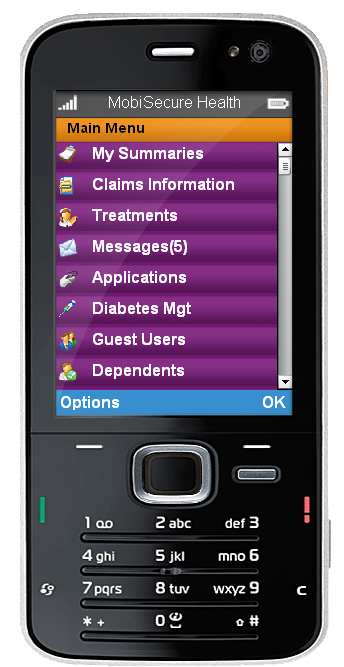 Our lead panel at MobiHealthNews Presents: Everywhere Healthcare at CTIA earlier this month debated whether Deloitte's prediction that the mobile personal health record is the killer app for mHealth and whether data collected by consumers can be trusted by healthcare providers.
Our lead panel at MobiHealthNews Presents: Everywhere Healthcare at CTIA earlier this month debated whether Deloitte's prediction that the mobile personal health record is the killer app for mHealth and whether data collected by consumers can be trusted by healthcare providers.
Is the killer app for mHealth really the mPHR?
"According to a report from Deloitte last month, the killer app for mobile health is the mPHR, mobile [personal health record]," Diversinet's Vice President of Healthcare Mark Trigsted said. "Deloitte believes there are two hurdles that need to be passed for mPHRs to take off: First, the data that the patient entered has to be segregated from data from the institution; Second, wherever the data is coming from has to be absolutely secure."
Deloitte is wrong.
"With all due respect, and I will say there are some very bright people at Deloitte, but I think they are wrong," Healthrageous Chief Technical Officer Doug McClure said. "There is a big problem with the PHR business. There are a lot of good vendors and lots of good technology providing interesting services, but consumer engagement is terrible, right? Only 7 percent of people who have PHRs actually use them. The challenge becomes: Revenue will flow where people engage. Those models out there that are fitness and wellness driven had to figure out a really lovely hook. That’s where you get engagement; That’s where you get revenue. The mobile PHR is, in the end, a part of all these services that we are talking about. They are all PHRs of a type."
Will it take more health data from providers for consumers to engage with mobile PHRs?
"Incidentally, I completely agree with you," Trigsted replied. "I have several PHRs and the reason I don’t use them is that I don’t want to put the data in. I want to get real data from my institution that I can use on my mobile, but that’s not happening yet."
Providers will be suspicious of mobile health data entered in by consumers.
"There is a real challenge for the consumer for how this data will be used and what happens once it's put there," Madeline Pantalone, Vice President, Strategy and Business Development at GreatCall/Jitterbug. "From a healthcare provider perspective, I would be very suspicious of downloading PHR data into my EMR. I would question: Is it correct? Is it timely? Is it objective? There’s a lot of information that can be placed there that could be very misleading if a clinician tried to use it. There is also a whole liability issue for them. So, I think it might be a nice place to plant everything, but what is the value to me as a consumer if I can’t really share it with my clinician. I think other FDA-approved mobile applications with objectively collected data in secure environments that have proven efficacy can be brought into an EMR because that is trusted data."
Mobile health is a step up from blue books, but...
"It’s certainly possible that thing have changed at Partners Health Care [in the past few months], but [while I was there] we had to figure out how to segregate that device-driven data from an individual and put it in a separate bucket so it did not become a part of the official medical record. Could it be used and viewed by the doctor? Yes. Was it treated the same way -- from a security stand point -- as lab results? Yes, of course. Did it carry the same level of trust as compared to numbers from lab results or other data coming in from trusted healthcare organizations? No. It is a step up from blue books -- from people filling out their blue books and bringing them in for their appointments. The doctors that we worked with at Partner’s were very interested in getting at this data, which at least solved a lot of issues surrounding the accuracy of self-reporting."
To be trusted it needs to be without human intervention...
"The information that might accompany data collected from devices -- answers to questions like ‘how do I feel?’ or ‘what did I just eat?’ or ‘what did I do in terms of exercise?’ could be as accurately recorded as it would be when a physician is recording it in the office with a patient," GreatCall's Pantalone said. "The actual reading off a device though, in order to be trusted, needs to be recorded without human intervention. That’s what Agamatrix and others are starting to do."















